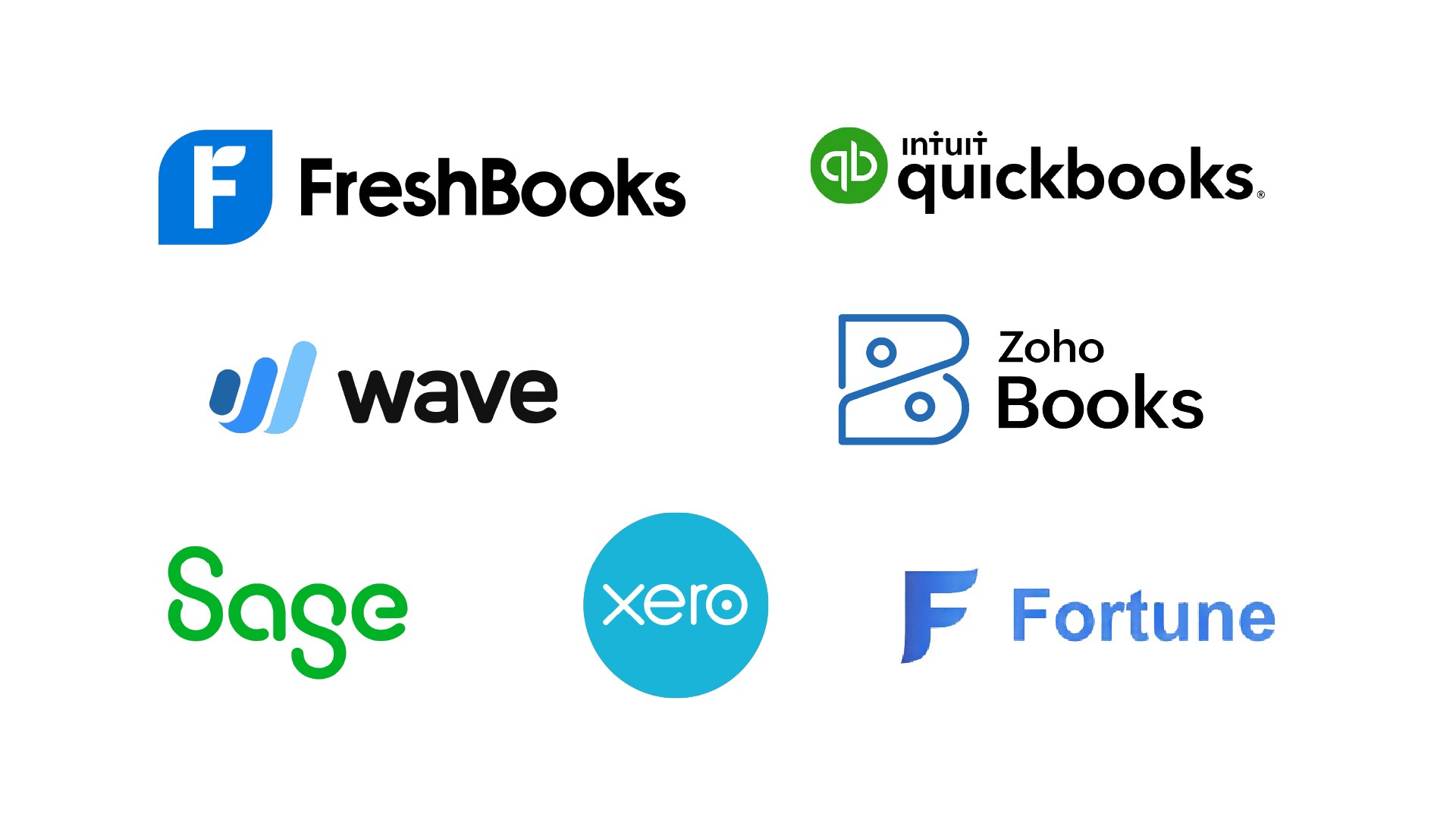
Back to Blog
Share Post:

AI
Jan 30, 2024
Streamlining Daily Financial Tasks with AI Tools
In the evolution of accounting, AI marks a transformative era. From automating mundane tasks to empowering accountants with advanced analytics, AI tools like Fortune App redefine financial management.
The synergistic relationship between accountants and AI not only saves time and helps decision-making but also creates new opportunities, fostering innovation in both the accounting and technology sectors.
With its automated features and competitive pricing, the Fortune App exemplifies the modern, efficient future of AI-driven financial management. The collaborative environment between AI and human expertise heralds a confident focus on growth and strategy in the dynamic world of business finance.
AI in Accounting - A Broad Overview
As a discipline, accounting has evolved over centuries to meet the dynamic needs of businesses and economies. From the abacus to manual ledgers, the journey of accounting has been marked by the continuous quest for efficiency and accuracy.
However, a big change occurred with the introduction of computers in the middle of the 20th century, which automated data storage and calculations. On the other hand, accounting is undergoing a revolutionary revolution due to the emergence of Artificial Intelligence (AI).
The Rise of AI in Accounting
In recent years, artificial intelligence (AI) has emerged as a major changer in the accounting world. It employs machine learning algorithms, data analytics, and enhanced automation to simplify financial procedures. This integration has substantially reduced the scope for errors and improved the overall reliability of financial reporting.
Automation and Efficiency
One of the primary contributions of AI to accounting is automation. AI-powered systems can now perform repetitive and time-consuming operations like data input and transaction processing. This speeds up the process and helps accountants concentrate on more complicated, strategic areas of financial management.
Data Analysis and Decision Support
AI facilitates powerful data analysis in accounting. It can swiftly analyze vast datasets to identify patterns, trends, and anomalies. This capability empowers accountants to make more informed decisions, forecast financial outcomes, and provide valuable insights to guide business strategies.
Challenges and Ethical Considerations
While AI brings many benefits, it also raises concerns about job displacement and ethical considerations. Striking a balance between technological advancements and the human workforce's well-being is crucial to harness the full potential of AI in accounting.
What Is Accounting Software?
Accounting software is a digital solution that streamlines financial tasks like expense recording, invoicing, and reporting. It ensures accurate and organized financial data with features such as double-entry bookkeeping and payroll processing, aiding compliance and efficiency.
How Is AI Used In Accounting?
AI revolutionizes accounting through automation and predictive analysis. It automates data entry, categorization, and reconciliation, reducing errors and saving time.
AI's predictive analysis leverages historical data for forecasting, empowering businesses with insights for informed decision-making and strategic planning. Together, accounting software and AI enhance accuracy, efficiency, and future-oriented financial management.
Let’s explore some common examples:
Invoicing
The conventional invoicing process has been transformed by AI, making it more efficient and precise. Automated systems can extract key data from invoices, such as amounts, dates, and vendor information, decreasing the need for manual data entry.
This not only minimizes errors but also accelerates the overall invoicing cycle. Machine learning algorithms can learn from historical data, improving accuracy and ensuring consistent and reliable invoicing processes.
Financial Reporting
AI plays a crucial role in enhancing financial reporting by automating financial data extraction, analysis, and interpretation. Advanced analytics and machine learning algorithms enable accountants to generate real-time and predictive financial reports.
These reports offer valuable insights into financial performance, trends, and potential risks. AI-driven financial reporting systems can quickly adapt to regulations and accounting standards changes, ensuring compliance and providing stakeholders with up-to-date and accurate information.
Fraud Detection
Detecting fraudulent activities in financial transactions can be challenging, but AI has significantly strengthened fraud detection capabilities in accounting.
Machine learning models can analyze vast amounts of data to identify patterns and anomalies that may indicate fraudulent behavior. This proactive approach allows businesses to mitigate risks and prevent financial losses.
AI-powered fraud detection systems continuously evolve as they learn from new data, making them highly effective in staying ahead of emerging threats.
Automation Of Routine Tasks
AI-driven automation has streamlined routine accounting tasks, reducing manual workloads and improving efficiency. Tasks such as data entry, reconciliation, and categorization can be automated, allowing accountants to focus on more strategic and value-added activities.
Robotic Process Automation (RPA) tools can handle repetitive tasks with precision and speed, freeing human resources for tasks requiring critical thinking and decision-making. This enhances productivity and improves the overall quality of accounting processes.
How Does AI Help Accountants With Financial Tasks?
In finance, where precision and efficiency are paramount, artificial intelligence (AI) is proving to be a game-changer for accountants. By automating routine tasks and providing advanced analytical capabilities, AI saves time and enhances the quality of financial services.
Here, we dive into the key ways AI is transforming the role of accountants.
Save A Bunch Of Time
One of the most significant contributions of AI to the accounting profession is the time it saves on mundane, repetitive tasks. AI-powered automation tools can effortlessly handle data entry, reconciliation, and transaction categorization.
This not only reduces the likelihood of human error but also frees up accountants to focus on more strategic and value-added activities. The time saved can be reallocated towards critical analysis, decision-making, and client interaction.
Makes Business Decisions Easier
AI is about making data understandable regarding business choices. Using predictive analytics and scenario modeling, accountants may utilize AI to examine the probable effects of various financial plans.
This proactive approach to decision-making allows businesses to navigate uncertainties with more confidence. Accountants armed with AI-driven insights can contribute significantly to strategic planning, helping businesses adapt to changing market conditions and regulatory environments.
Create More Jobs
Apart from the fear that AI might replace human jobs, it is playing a role in creating new opportunities within the accounting sector. As routine tasks become automated, accountants are evolving into roles that require higher-order thinking, strategic planning, and advanced problem-solving skills.
The demand for professionals leveraging AI tools to extract meaningful insights from financial data is rising. This shift in job responsibilities is fostering a need for continuous learning and upskilling among accountants, ensuring they stay relevant in the age of AI.
Generate Jobs
Beyond the accounting profession, implementing AI in financial tasks generates jobs in the technology and AI development sectors. The need for AI programming, data science, and machine learning experts is expanding as businesses invest in cutting-edge technologies.
The synergy between accountants and AI developers creates a collaborative environment where each contributes to enhancing financial services. This not only fosters innovation but also creates a diverse range of job opportunities across multiple industries.
Best AI Accounting Software To Financial Tasks
The Fortune App emerges as a revolutionary AI accounting software designed to streamline financial tasks. This software is especially tailored for high earners and entrepreneurs.
Key Features of the Fortune App
Automated Transaction Refresh: Automatically updates your latest transactions, ensuring real-time insights into your financial activity.
Personal AI Accountant: Employs AI technology to provide personalized financial assistance, enhancing your accounting experience.
Expense Categorization: Automatically categorizes expenses, simplifying financial tracking and offering a clear breakdown of spending.
Daily Transaction Analysis: Allows for in-depth analysis of daily transactions, providing valuable insights into your financial trends.
Cash Flow Analysis: Offers a comprehensive view of your cash flow, helping you understand your financial health and plan for the future.
Global Bank Connectivity: Connects seamlessly with over 17,000 banks in the US, EU, and Canada, consolidating all your financial information in one place.
Informed Decision-Making: Empowers users with precise financial insights, facilitating informed decisions for increased savings, improved revenue, and risk mitigation.
Pros
Cross-platform accessibility (iOS and Android).
Continuous user feedback implementation.
Emphasis on automation with no need for manual data entry.
Security measures prioritize safeguarding financial data.
Competitive pricing compared to other accounting software.
Cons
Being a new entrant, some features are still being developed.
In summary, Fortune positions itself as a modern financial management tool leveraging AI, offering a holistic and automated approach to business finances. While still evolving, its features and pricing make it a compelling option in the competitive landscape of AI accounting software.
Bottom Line
In conclusion, AI tools, like Fortune App, redefine the landscape of daily financial management. These tools streamline operations by automating tasks, categorizing expenses, and providing real-time insights, empowering users with a modern and efficient way to handle their finances.
The era of labor-intensive financial tasks is giving way to a streamlined, AI-driven future, where businesses can confidently focus on growth and strategy.
FAQs
How Can AI Be Used In Accounting?
In accounting, AI automates repetitive tasks, categorizes transactions, and offers real-time analytics. It enhances efficiency, reduces errors, and allows accountants to focus on strategic decision-making.
How Does AI Help Solve Accounting Problems?
AI streamlines processes minimizes manual data entry, and provides data insights. It addresses challenges by automating routine tasks, ensuring accuracy, and improving overall efficiency.
Will Artificial Intelligence Take Over Accountants?
AI augments, not replaces accountants. It handles routine tasks, enabling accountants to focus on complex analysis, strategy, and client relationships.
Can You Use ChatGPT For Accounting?
Yes, ChatGPT can assist with answering queries, explaining concepts, and providing general information in accounting. However, it's not a substitute for specialized accounting software.
Share Post:




